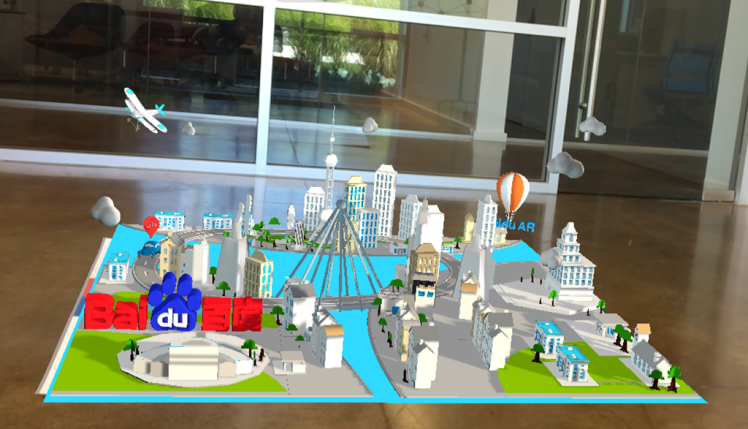Baidu today is announcing the launch of DuSee, an augmented reality (AR) platform geared toward mobile devices. It’s being integrated into Baidu’s mobile apps, including the company’s core search app for iOS and Android.
In contrast to some companies — like Microsoft with its HoloLens — Baidu is opting not to release a headset. Instead, it’s focusing on the software. This is in line with Snapchat’s approach to augmented reality, with its virtual rainbow vomit and Marley-esque head gear.
“The path to better AR is through better A.I. [artificial intelligence],” Baidu’s chief scientist, Andrew Ng, is quoted as saying in a statement on the news. “DuSee is a natural extension of Baidu’s A.I. expertise. The platform uses sophisticated computer vision and deep learning to understand and then augment a scene.”
Deep learning is a type of A.I. that involves training artificial neural networks on lots of data, like photos, and then directing the neural networks to make inferences about new data. Ng, formerly of Google, is one of the luminaries in the field of deep learning. Now Baidu Research’s Institute of Deep Learning has collaborated with Baidu’s search team to launch a product in the world of AR.
Google has come out with a mobile-focused AR platform, Tango, which has been implemented in Lenovo’s Phab2 Pro phablet.
Baidu, meanwhile, is already thinking about how other companies can take advantage of its DuSee technology. One customer is using it for interactive marketing, a company spokesperson told VentureBeat in an email. See below for an example:

Above: An example of how a company is using Baidu’s augmented reality technology for marketing purposes.


